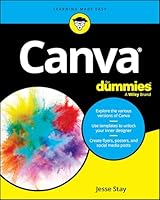
Perspective Drawing in Adobe Illustrator CS5
- Length: 100 pages
- Edition: 1
- Language: English
- Publisher: Adobe Press
- Publication Date: 2011-04-29
- ISBN-10: B004YWAZYQ
- ISBN-13: 9780321733429
- Sales Rank: #2461676 (See Top 100 Books)
Adobe Illustrator CS5 brings to users a hitherto new paradigm of vector drawing – perspective or “3D-like” drawing. The scores of questions asked by pre-release testers of Illustrator CS5 due to lack of acquaintance with the terminology of perspective motivated the authors—members of the Illustrator development team— to write this book. Perspective drawing is a relatively specialized domain pursued by technical artists and draftsmen while Illustrator caters to a wide array of professionals and hobbyists ranging from traditional graphic designers and package designers to web and interactive designers. The authors’ goal has been to bridge that gap. By explaining the concepts of linear perspective, they have tried to make the entire book self-contained as much as possible; however, basic exposure to the previous versions of Adobe Illustrator is assumed.
The book begins with describing the way perspective works in the real world. Then the perspective drawing features in Illustrator CS5 are introduced, beginning with working in Perspective View, followed by lessons in drawing and creating and transforming shapes in perspective. More advanced topics like moving objects in 3D and working with text and symbols are covered next, and finally the authors walk the reader through the construction of a simple scene. A Glossary and Appendices (dealing with scripting) round out the book.
Adobe Illustrator CS5 brings to users a hitherto new paradigm of vector drawing – perspective or “3D-like” drawing. The scores of questions asked by pre-release testers of Illustrator CS5 due to lack of acquaintance with the terminology of perspective motivated the authors—members of the Illustrator development team— to write this book. Perspective drawing is a relatively specialized domain pursued by technical artists and draftsmen while Illustrator caters to a wide array of professionals and hobbyists ranging from traditional graphic designers and package designers to web and interactive designers. The authors’ goal has been to bridge that gap. By explaining the concepts of linear perspective, they have tried to make the entire book self-contained as much as possible; however, basic exposure to the previous versions of Adobe Illustrator is assumed.
The book begins with describing the way perspective works in the real world. Then the perspective drawing features in Illustrator CS5 are introduced, beginning with working in Perspective View, followed by lessons in drawing and creating and transforming shapes in perspective. More advanced topics like moving objects in 3D and working with text and symbols are covered next, and finally the authors walk the reader through the construction of a simple scene. A Glossary and Appendices (dealing with scripting) round out the book.







